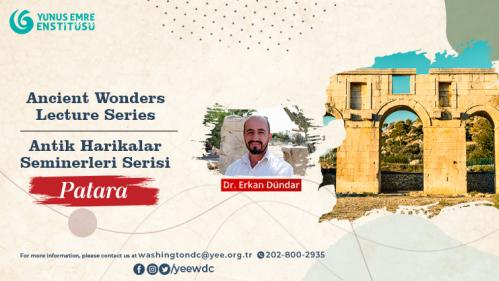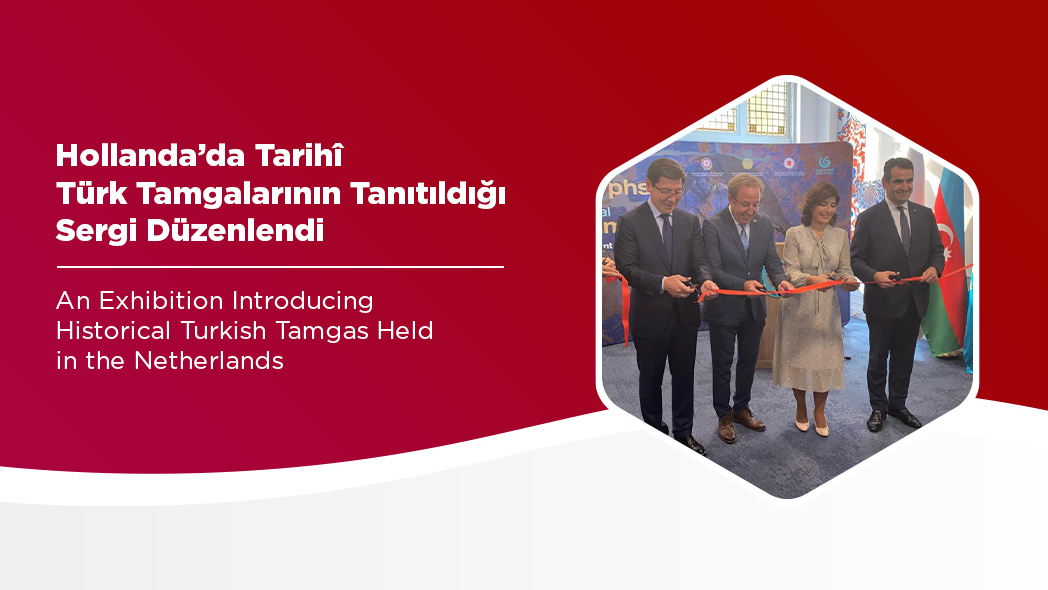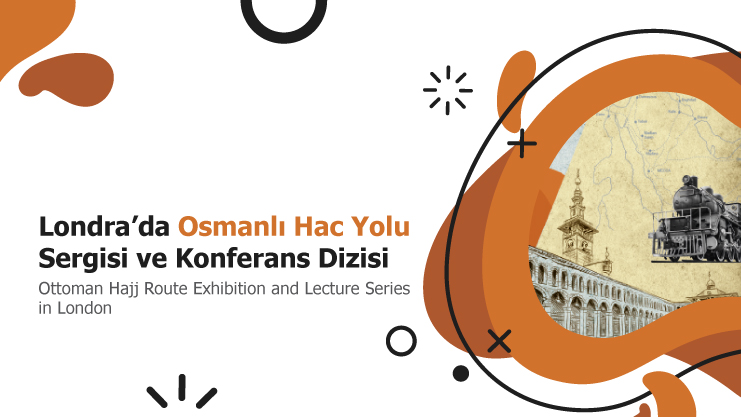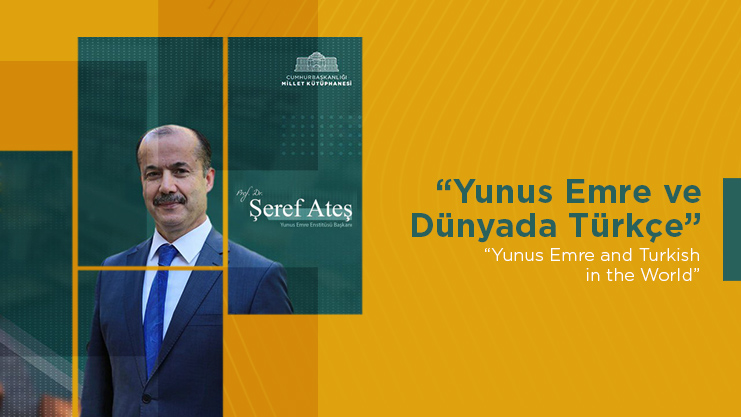Assoc. Prof. Erkan Dündar Delivered a Speech about the Ancient City of Patara
The Yunus Emre Institute continues to introduce the archaeological heritage in Anatolia to the world. Assoc. Prof. Erkan Dündar gave a speech about the ancient city of Patara in the first part of the online conference series coordinated by the Washington DC Yunus Emre Institute.
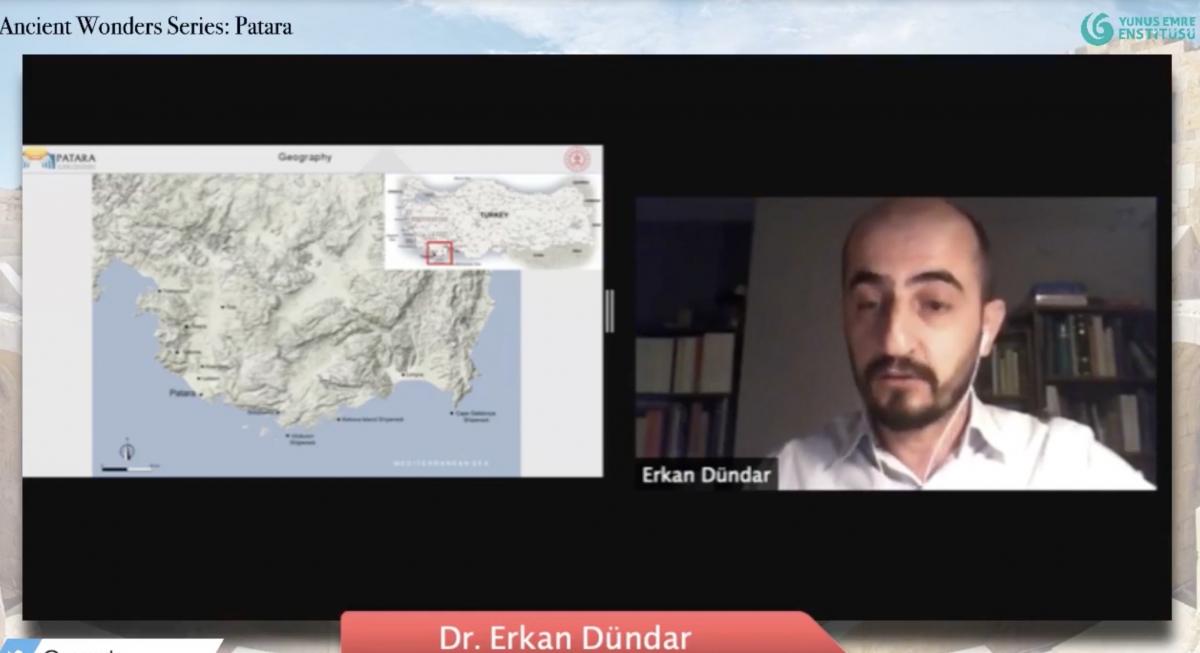
The Anatolian civilizations are introduced to the world through the online conference series coordinated by the Washington DC Yunus Emre Institute.
Within the scope of the ancient cities series that sheds the light on the world history, Patara, one of the most important ancient cities of Turkey, was presented by Vice-Director of Patara Excavations Assoc. Prof. Erkan Dündar.
Assoc. Prof. Erkan Dündar, an instructor at the Akdeniz University, have delivered an important conference about the city of Patara in Antalya at the event that was moderated by Harper Clark, the Washington Yunus Emre Institute Public Relations Assistant. Assoc. Prof. Dündar, accepted as an authority on underwater archaeology and ceramics, have talked about the archaeology of Patara worldwide. The groundbreaking developments in the archaeology of Patara were mentioned in the online event.
THE MOST IMPORTANT WORKS OF THE LYCIAN CIVILIZATION ARE LOCATED IN PATARA
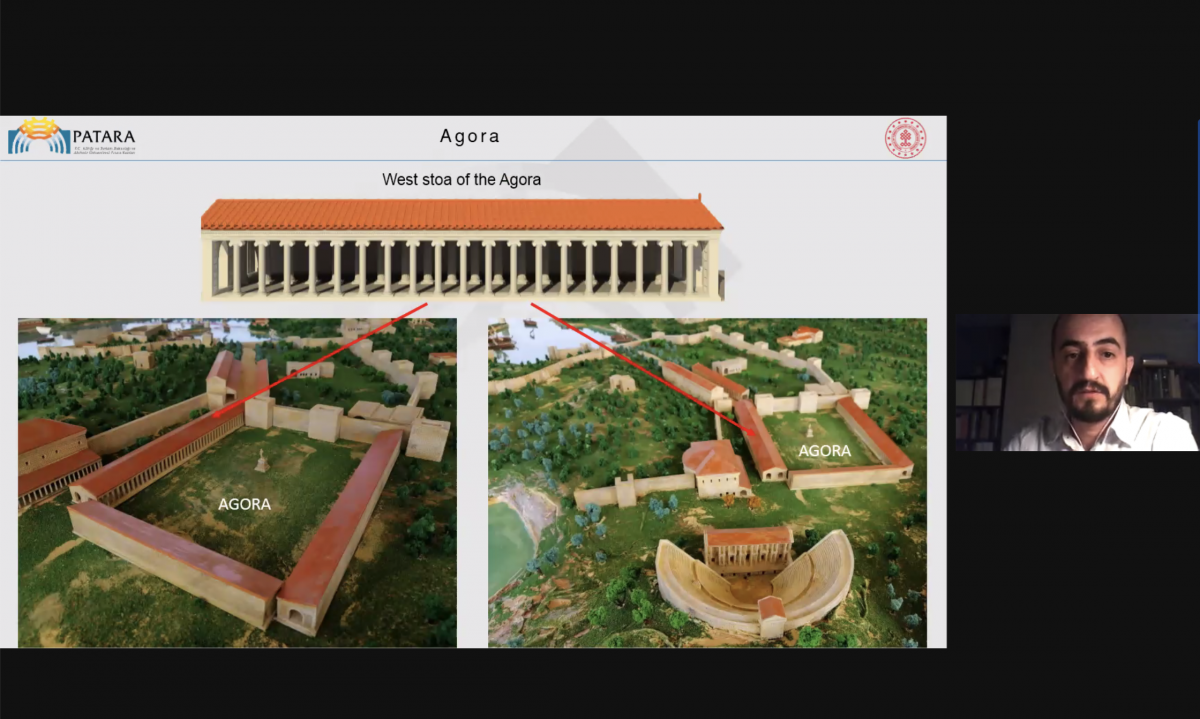
Assoc. Prof. Dündar started his talk with the geographical properties of the ancient city of Patara and mentioned that the Tepecik mound located within the city was the earliest settlement. Dündar said that the archaeological findings concentrated in this area and the most important works of the Lycian civilization were located there.
Dündar mentioned that the city was important throughout the history as it was the only location that allowed sailing to the sea, and he talked about the architecture of the city and changes in them over time.
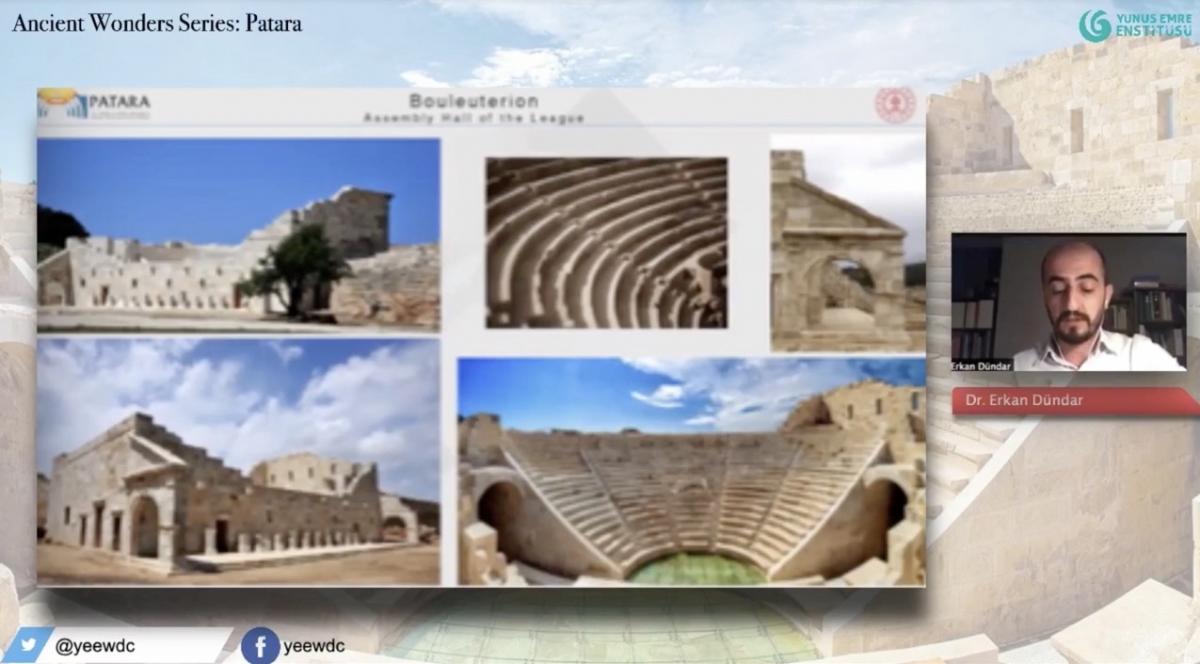 Patara, with a magnificent history as early as the Bronze Age, was used as settlement for a few centuries until it was left for the Byzantine Empire. Although Assoc. Prof. Dündar works mainly on the ceramics of the site, he delivered a presentation that gave an overview of the most important parts of the archaeological site. Assoc. Prof. Dündar emphasized the importance of the Roman Theater, which was built after city came under the Roman control, and the importance of the harbor and Tepecik mound where the Bronze Age settlement was located. Assoc. Prof. Dündar talked about the important citizens born in Patara such as the St. Nicholas and explained how the life was for the citizens of Patara hundreds of years ago.
Patara, with a magnificent history as early as the Bronze Age, was used as settlement for a few centuries until it was left for the Byzantine Empire. Although Assoc. Prof. Dündar works mainly on the ceramics of the site, he delivered a presentation that gave an overview of the most important parts of the archaeological site. Assoc. Prof. Dündar emphasized the importance of the Roman Theater, which was built after city came under the Roman control, and the importance of the harbor and Tepecik mound where the Bronze Age settlement was located. Assoc. Prof. Dündar talked about the important citizens born in Patara such as the St. Nicholas and explained how the life was for the citizens of Patara hundreds of years ago.
PATARA UNDER THE INFLUENCE OF THE ROMAN EMPIRE
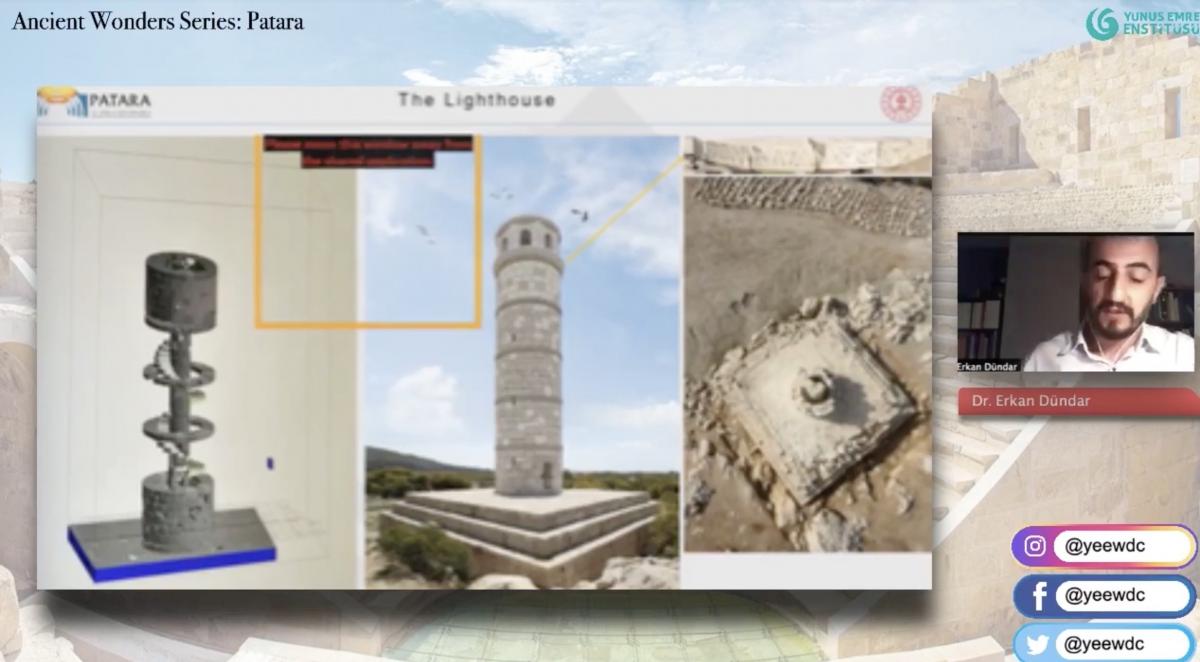
Erkan Dündar shared the developments in the excavations alongside the information about the ancient city of Patara and its history and told about the Roman theater, which was built after the city came under the control of the Roman Empire, as well as the life of its citizens during that period. Various samples of the ceramics found in the site attracted great deal of attention from the participants.
The programme ended after the questions of scholars from different universities and museum employees about the ancient city of Patara and the excavation process.
Assoc. Prof. Dündar explained that at some point, the Byzantine administrators of Patara hired Viking warriors as mercenaries for their armies. |
The participants, who were quite interested in Patara, have asked many questions to Assoc. Prof. Dündar at the Q&A section of the event regarding the geography of the city, inscriptions found in the city, and the future plans for the restoration of the important buildings. When asked about whether the ancient harbor in Patara would be rebuilt, Assoc. Prof. Dündar answered that it would be impossible since this would require an intensive work that would damage the nature of Patara.
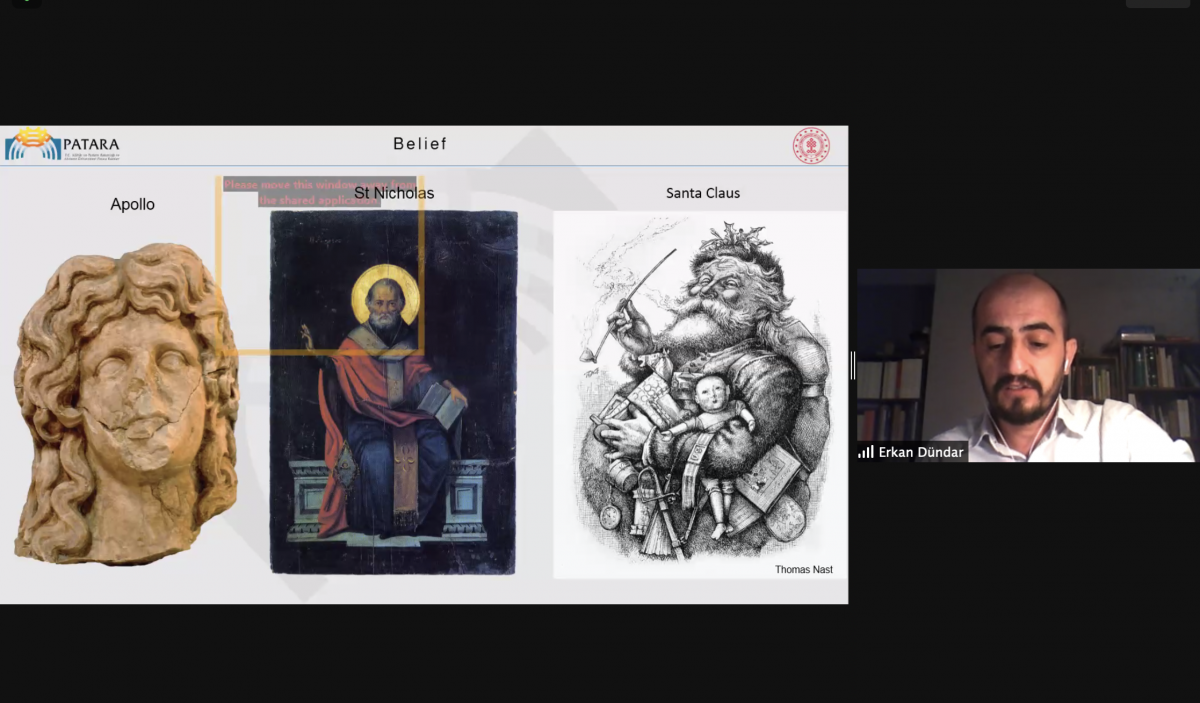
The participants asked Assoc. Prof. Dündar about how Viking artifacts were found in Patara and how Byzantine administrators utilized the Vikings in the army as mercenaries. The talk of Assoc. Prof. Dündar about Patara was well liked by the conference participants.
You can watch the programme from the social media accounts of the Yunus Emre Institute as well as the link below:
https://www.pscp.tv/w/1gqxvoZYMajKB
TROY IS THE NEXT ANCIENT CITY
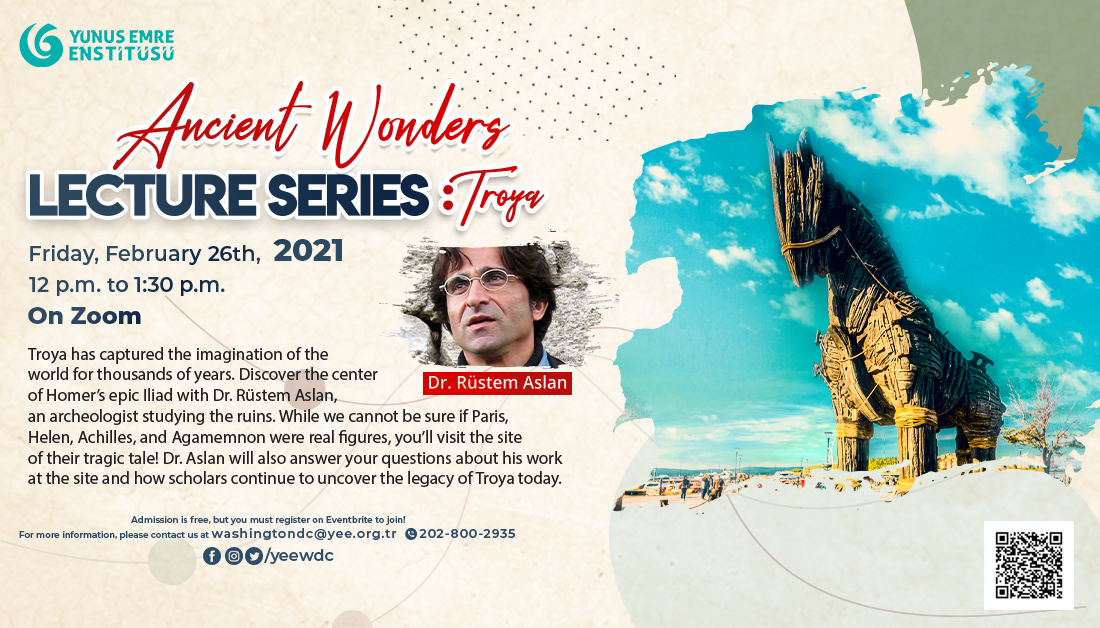
The Yunus Emre Institute will continue to introduce one of the most important values of our cultural heritage, Anatolian civilizations, to the world with their mysteries and facts. In the next event within the scope of the conference series that will continue throughout the year, Prof. Rüstem Aslan will talk about the architectural remains and findings from the ancient city of Troy on February 26th, 2021.
ABOUT THE YUNUS EMRE INSTITUTE
The Yunus Emre Institute started its operations in 2009 in order to introduce Turkey, the Turkish language, history, culture and art abroad and to provide all kinds of services in these areas, and assumed an important role in the promotion of Turkey.
The Yunus Emre Institute has 60 centers all around the world and carries out a wide range of works from teaching Turkish to the culture and arts events, Turcology projects to scientific cooperation agreements and cultural diplomacy activities.
The Institute acts with the mission of increasing the recognition, trustworthiness and reputation of Turkey internationally and aims to increase the number of people who connect with and are friendly to Turkey.
The Yunus Emre Institute is a cultural center that is located in Washington DC and other parts of the world. The Institute hosts educational events and programmes about the Turkish people, culture, history and language. For more information about the Institute's mission and the online programmes, please send an email to washingtondc@yee.org.tr or follow @yeewdc on Twitter Facebook and Instagram.

